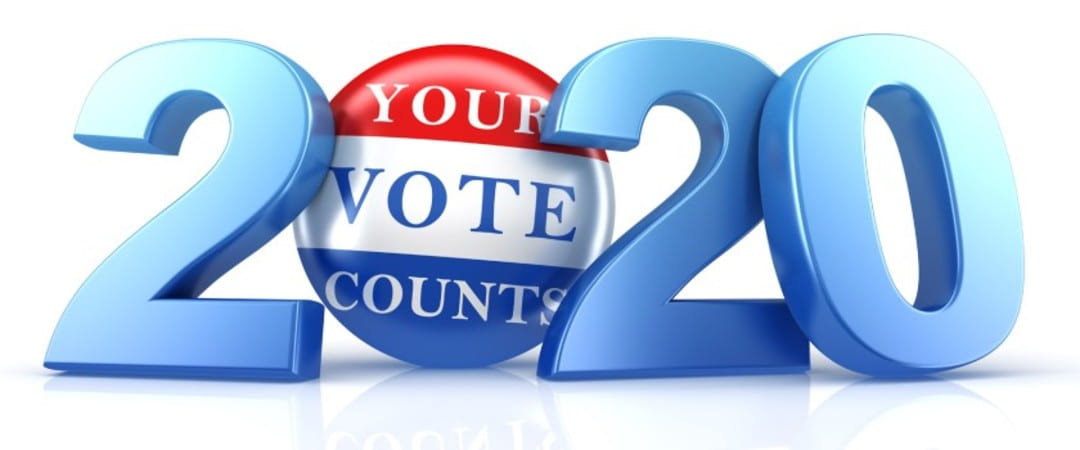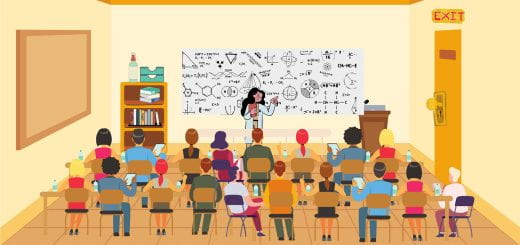Teaching Amid Election-Related Stressors

2020 has been a challenging year on many fronts, including public health and social unrest. Now, as we near the November 3rd election, many are experiencing additional stress. Regardless of political affiliation, people are worried about the impact of the election. Both faculty and students report increasing mental health concerns.
As teachers, how do we handle such difficult times? Do we address or even approach topics such as the election, social unrest, and the pandemic in our courses? Faculty are not trained counselors, and you might never have had to discuss these difficult issues in a class before. Nor can we control the external stressors that cause these challenges to our already impacted mental health. What, if anything, should we do?
As Georgia Tech students told us after the killing of George Floyd and the resulting protests, one of the worst things a faculty member can do is simply ignore what happened, to move forward with a class meeting as if nothing has changed. Students don’t check their feelings at the door –or when classes move online. Many students want the opportunity to be heard and validated in a safe classroom environment with the support of their peers and faculty members.
This resource offers strategies for addressing the election both before and after November 3rd. Many of the suggestions apply to difficult situations beyond the election as well.
Quick Tips
- Create a safe environment for students to share their thoughts and feelings after a difficult or distressing event. Learning the course content will likely be the furthest thing from students’ minds as they come into the class.
- Acknowledge the event and the diversity of reactions that students may experience. Let students know that their reactions are important to notice and process.
- Share your own feelings if you feel comfortable doing so and can avoid being partisan. Students appreciate seeing their faculty members as human beings who might be struggling with the events as well.
- Offer space for students to share their thoughts at the start of class, through direct discussion, chat messages, or an anonymous discussion board prompt.
- Create ground rules for the conversation so as to avoid clashes and hurt feelings, such as offering everyone one a speaking turn or encouraging constructive comments
- Extend understanding without offering advice. Faculty do not need to be trained counselors to offer space and understanding for students in difficult times.
- Connect the event to your course and discipline in some way when possible, perhaps through discussions of policy or examples of what role your discipline plays in the issues relevant to the election.
- Be flexible. One’s ability to concentrate and maintain focus is often compromised in times of difficulty or distress, so be flexible in deadlines and learning opportunities the week of the election.
- Help students prioritize their self-care and healing by sharing available campus resources and partnering with Student Affairs professionals. Students may not know where they can go for support when they need it most.
- Take care of yourself. You cannot be there for students if your well is empty.
Resources for Teaching During the 2020 Election
ACT to Sustain Learning Through Current Events (Stanford)
The ACT model encourages faculty to Anticipate that students will need to deal with the event during the next class meeting, Create Space for students to safely process their thoughts and feelings, and Tie the event to course learning. This helpful graphic summarizes the approach and a working document of resources provides an extensive number of A, C, and T activities that can be done with students
Teaching and the Election
This post from the University of Oregon provides a comprehensive set of recommendations and strategies for addressing the election and actions you can take to potentially alleviate some of the stress associated with these events. Much of the advice centers around connecting to your students, connecting students with each other, and connecting your course and community.
Preparing to Teach About the 2020 Election (and After)
This holistic guide to teaching about the election from the Center for Research in Teaching and Learning at the University of Michigan addresses three relevant questions related to the role of your discipline in these events, how students might practice the skills needed for democratic participation during this period, and how to put stakes for students and faculty in perspective..
Leading the Classroom in Tumultuous Times: A Video Resource for Instructors
In this recording of a conversation, a professor and general counsel at the University of Michigan discuss issues of privacy, free speech, policy, and classroom disruption and management as a primer for faculty heading into the week of the 2020 election.
Post-Election Panel Opportunity
On November 20th from 1:30-2:30, the Center for the Study of Democratic Politics and the Princeton School of Public and International Affairs at Princeton University will offer a webinar panel titled, The 2020 Elections: What Happened, and Why? Register here.
Additional Resources on Teaching in Turbulent Times
Teaching in Turbulent Times
In a sister post to the University of Oregon’s Teaching and the Election webpage, this resource goes into depth on working with students during a broader range of distressing situations and offers advice for connecting with students, facilitating potentially emotional interactions, and addressing the event itself effectively.
Teaching in Times of Strife and Trauma: Curated Resources with Actionable Ideas
This working document from the Teaching and Learning Lab in the Graduate School for Education at Harvard offers resources for teaching in traumatic times, discussing difficult topics, and being anti-racist and equitable in teaching.
Stepping Up to Support Students in the Current Moment
In this CTL blog post written by CLT faculty and Serve-Learn-Sustain staff, we summarize some of the critical points made on our June Stepping Up panel conversations held soon after the death of George Floyd, especially in terms of reaching out and responding to students who may be hurting in this moment.
Dealing with Distressed Students
This CTL resource a provides specific strategies for communicating effectively and supporting distressed students.
Tips from Georgia Tech
Email from Drs. Bonnie Ferri and Colin Potts
Election Day Consideration for Student Voters
In accordance with the SGA motion passed by the Faculty Executive Board over the summer, we ask that you provide academic consideration and flexibility for student voters and election volunteers on Tuesday, Nov. 3. Classes will be in session that day, but please avoid scheduling in-class assessments, and consider making lecture recordings available for students who are unable to attend. Thank you for your flexibility in supporting our students’ civic engagement.
Civil Discourse in the Classroom and Resources
The upcoming general election is a topic that may naturally find its way into the classroom. Please keep in mind that there are limits to what we can discuss or allow to be discussed, whether in lectures, office hours, correspondence, group discussions, or advising meetings. It is important that we keep personal political views separate from our roles as educators. Please note that academic freedom and the First Amendment do not protect us if we advocate a political position in a course. Nor should we allow students’ political views to overrun a classroom or online class discussion. Because we determine students’ grades, some students may feel unable to disagree, or may feel intimidated by an instructor who introduces their own political opinions into a course discussion. Please try to create a safe environment for discussion in which all students can express and explore ideas without fear of censure.
Student Support and Resources
The election will be a source of deeply held convictions. Whatever the result, many students may feel disappointed, disoriented, and overwhelmed. Please show empathy and support for students you see reacting this way. If you sense that a student may need additional support, please consider recommending them to or making a referral to the following student support services: the CARE Center, Counseling Center, or Stamps Health Services.
Separating the Private from the Professional
As private citizens, faculty have the right to discuss their opinions outside the context of a course, if it is made clear that these do not reflect the views of the Institute or the University System of Georgia (USG). USG employees cannot use any USG or Georgia Tech resources such as email, Institute social media accounts, or letterhead to promote or oppose political campaigns, parties, or candidates.




